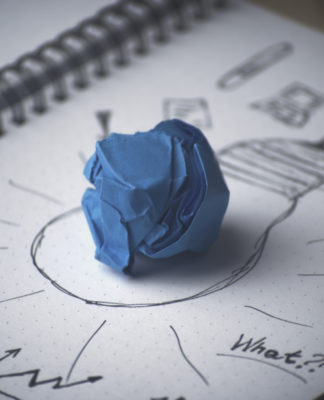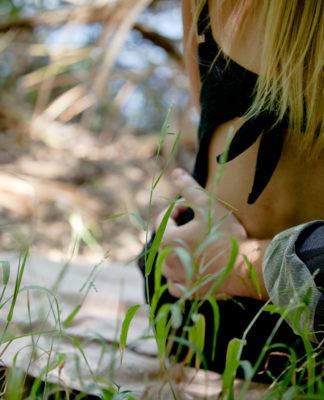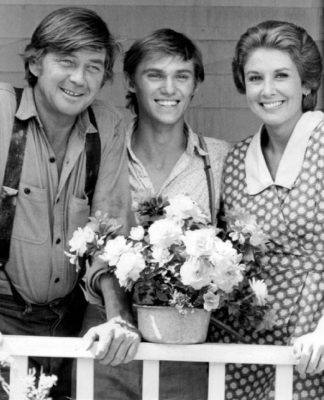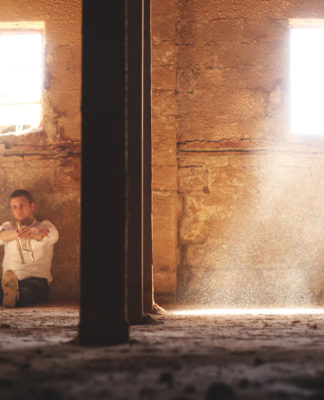Any Fringe fans out there?
Oops, I just gave away my inner Sci-Fi nerd by asking. If you’re not a fan or have never seen the series, it’s a smart and entertaining take on parallel universes and what could happen if they exist. However, you’re probably not reading this blog entry to geek out about a Sci-Fi series with me.
Stick with me. I’m getting there.
In the series, there are these futuristic beings called the Observers. They are evolved humans: genetically modified to have no emotions. The engineers of this emotion removal project perceive the emotional expression of humans as irrational and inconvenient. The basic idea is that they view an evolved human being as one that would not let emotions get in the way. In this future portrayal of beings, we see humanity at its most horrific: lacking empathy, having no need to bond with others, and growing humans in capsules instead of wombs. An engineered race of detached humans.
Crazy, right? Why would you want to obliterate the one thing that helped us survive and evolve? A system that at the heart of it, makes us human. Our emotions are part of an elegant and complex system that makes us capable of loving, nurturing and creating a purposeful existence.
We might not be quite like the enthusiastic scientists engineering Observers, but we similarly downplay the value of emotions in our North American culture. A culture that prizes individuation. Often, the dominant message about expressing emotional vulnerability is that by wanting to be needed and needing others makes us weak or childish.
Thankfully with the hard work and research in Adult Attachment and Bonding we have been making headway to deconstruct this archaic and harmful stance. The Attachment field tells us there are two types of dependency, effective or ineffective dependency. Words like co-dependent miss the mark, and get us thinking that there’s something like catching a horrible disease to depend on someone and worse, that there is something wrong with us to want and need another human being.
In my practice and even in my own experiences, I see how displacing and or disowning emotions gets us stuck and how in those moments we haven’t managed to maximize the use of our beautiful emotional intelligence system. Instead, the experience and expression of feelings sets off old rigid patterns. I get it, emotions like fear and shame, which probably are the toughest and difficult to express feelings of our emotional repertoire, have a way of getting us off balance, and in some cases reacting in ways that end up hurting others and ourselves even more.
So how do we work with rather than against our emotional experience?
-
A good first step is acknowledging that our emotions are valuable and are embedded in its own intelligence system.
-
Work toward identifying any rigid strategies we use in our relationships that keep us stuck and feeling misunderstood or more disconnected from others. If you’re a self-motivated learner, reading about Attachment strategies may be a helpful way to understanding your own strategy. There are quizzes available online for free.
-
We can renew our relationships with others and more importantly begin to value ourselves in deeper ways. We can begin to expect love and caring without experiencing barriers that keep us from it.
In the show, Fringe, Observers were likened to lizards, only capable of what we call fight or flight reactions. Fighting or running from a perceived threat. Mostly they fought. They could not enjoy the emotional colored nuances of flirting or getting lost in the bliss of falling in love or fighting for something they cared about. They did not have the need to bond with another, which inevitably meant that they had no purpose other than surviving.
Our emotions are an untapped intelligence and resource that no computer app or artificial intelligence can replace. I hope you choose to do the work and get to experience the value of your emotional experience. If you find yourself getting stuck and need extra support, finding a therapist who is trained to help guide their clients through their emotional blocks can be helpful.


 Bobbie R. Worrell, is a Licensed Marriage and Family Therapist, Licensed Mental Health Counselor and a Certified Substance Abuse Counselor in the State of Hawaii. She is also recognized as an International Certified Alcohol and Drug Counselor, and Substance Abuse Professional.
Bobbie R. Worrell, is a Licensed Marriage and Family Therapist, Licensed Mental Health Counselor and a Certified Substance Abuse Counselor in the State of Hawaii. She is also recognized as an International Certified Alcohol and Drug Counselor, and Substance Abuse Professional.


















